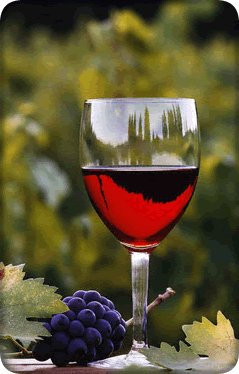How long should I age my wine?
It is recommended that you age your four week wines 3-4 months. Six week premium wines should be aged 8 months to a year. The best way to know when a wine is ready is when you like the taste of it.
What conditions should be considered when storing the wine?
Wine requires storing in a cool, dark, dry location before drinking. The optimum temperature is between 50-60ºF. A steady temperature is preferable, even if slightly higher or lower than recommended, rather than a fluctuating one. Rich red wines that are stored in near freezing temperatures may have some settling. We recommend that you give each bottle of red wine a 1/4 turn every month or so to avoid this settling effect.
What is the shelf life of home made wine?
Under optimual storage conditions, 4 week wines will last up to 5 years or more, however they stop aging after 1 year, so there is no beneficial reason to allow the wine to age further. With perfect storing conditions, a 6 week premium wine will last indefinitely. However, the 6 week wines stop their aging process after 2 years, after that they remain constant.
What is the ideal temperature setting to make wine?
The perfect temperature range to allow for a successful fermentation of your wine is 68-72ºF.
What is bentonite?
Bentonite is a clay product that helps clear wine and prevent chill haze in white wines.
What is the difference between #8 and #9 corks?
#9 corks are slightly wider - 24mm, so they give a tighter seal for long term storage of wine. #8 corks are 22mm wide. Manual corkers can use a #9 cork while automatic corkers can only use #8 corks due to the risk of bottle breakage.
Why should I keep my bottles upright 3-4 days after corking them?
You should leave your bottles upright so that the cork can expand into it’s original shape and seal your wine bottle. After that, it's important and beneficial to your wine to store the bottles on their side.
What is a campden tablet?
A campden tablet is 1/16 of a teaspoon of either sodium or potassium metabisulphite.
What do campden tablets do?
Campden tablets can be used to sterilize a must or they can be crushed and added to water to make a sterilizing solution.
Why are potassium metabisulphite and potassium sorbate added to wine?
Potassium metabisulphite is used as an anti-oxidant and potassium sorbate prevents refermentation in the wine.
Why do you de-gas or stir your wine?
Gas is produced during the fermentation process of your wine. Stirring the wine rids it of these unpleasant gasses.
What does adding oak do to the wine?
Adding oak gives the wine the illusion of aging it in an oak barrel.
What does adding elderberries do to red wine?
Elderberries add colour and aroma to the wine.
What does adding elderflowers do to your wine?
Elderflowers give aromas to white wines.
What does adding wine raisins do to your wine?
Raisins add body, aroma and complexity to wine.
What does adding banana flakes do to your wine?
Banana flakes add body texture and aroma to wine.
What is wine conditioner?
Wine conditioner is a sorbated sugar solution.
What does wine conditioner do to your wine?
Wine conditioner takes the edge off wine by masking unpleasant flavours.
What are finings?
Finings are additives used to help clear wine.
Why does it cost so much less to make your own wine?
The savings come from three sources:
- Tax savings as a result of the work you do
- The absence of retail store mark-ups
- You store and age your wine instead of the winery
I made an premium quality wine. Now there appear to be whitish flakes in the bottles, what are they and can I drink the wine?
What has happened is that the wine has formed what is commonly called wine diamonds or wine stones ("weinstein" in German). This is a common occurrence in red wines and ice wine or any wine where the grapes have been allowed to stay on the vine. The longer the grapes are on the vine the more wine acid will accumulate in the grapes. The wine acid is the building block of wine.
Another factor that may occur, is that the longer a wine is allowed to ferment the less crystals will form during the fermentation, but will occur later in the bottle.
The wine diamonds are odorless, tasteless and harmless.
The crystals or "Wine Diamonds" is an indicator that the grapes ripened long enough and that the wine fermented slowly. These two factors are important for quality wine.
It is a natural process for the wine to go through. The grape acid is partly composed of tartrates, as wine ripens these tartaric crystals "fall out"...
If you see these flakes in your wine the wine has actually reached it's peak of perfection. It is a sign of a quality wine. The crystals may also form on the cork, this will not negatively affect your wine.
During the process the tartrates actually take acid with them, which produces a rounder fuller wine.
Most North American commercially bottled wines have undergone cold stabilization. The wine is cooled down and the crystals fall out and can be filtered out before bottling. This is of course done to make the wine look better, but can also negatively affect the actual quality of the wine.
If you'd rather not serve the wine with the crystals, you can store the bottle standing up before serving and/or decanter the wine once the crystals have settled at the bottom of the bottle.

